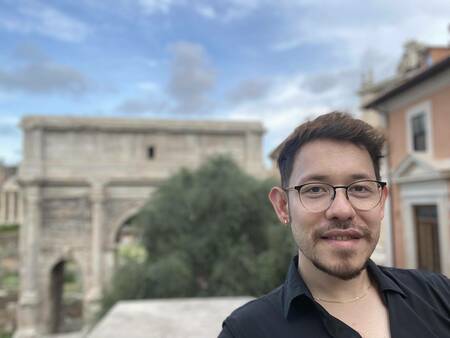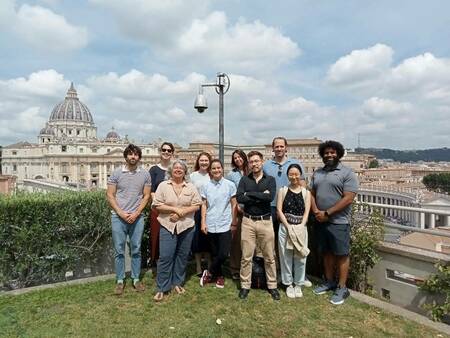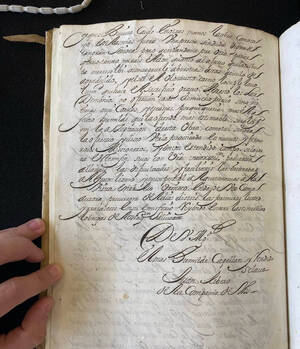Researching the Spanish Caribbean region through the 2023 Rome Archive Seminar

Rafael Nieto-Bello is a Ph.D. student at the University of Texas at Austin studying the Spanish Caribbean region in the long sixteenth century. Recently, he attended the 2023 Rome Archive Seminar at the Rome Global Gateway.
The Seminar, which was launched in 2016, is made possible by generous support from Stanford University, the Princeton University Humanities Council, and from Notre Dame’s College of Arts and Letters, the Charles and Margaret Hall Cushwa Center for the Study of American Catholicism, and the Center for Italian Studies. It is designed to introduce Ph.D. students from across the humanities to the unique primary sources available in Rome.

Nieto-Bello was one of ten students who attended this year’s seminar and who has been working hands-on with materials in Rome’s archives and libraries, being exposed to the rich potential of a wide range of sources produced from 1100 to 2023. He first learned about the program at a dinner among colleagues with the department of history at the University of Texas.
“Professor Madeline Mcmahon, a fellow of the program a few years ago, strongly sponsored it and although I didn’t have much time left to apply, I quickly convinced myself and sent the application in a few days,” comments Nieto-Bello.
Nieto-Bello’s work focuses on the development of knowledge about human diversity in the Caribbean region in the colonial times, and its impact on the study of cultural encounters and the environment. He is interested in how local clergy and officials used chorographical, historiographical, and inquisitorial documentation to describe the customs and beliefs of Iberian, Indigenous, and African peoples in the region and how these customs were employed to differentiate and classify people in "proto-racial" terms.
Although his topic of study is not easily connected to Rome, the depth of the collection that Rome hosts has been crucial for him.
“I have worked on the Spanish Empire before, and my previous research was about the sixteenth century.” says Nieto-Bello. “But what I had started to realize is that you can’t think about the process of colonization and the intellectual and systemic implications of it without considering the central role of the Catholic Church as an institution, and the inteligencia behind it.”
Nieto-Bello just finished his third year of the Ph.D program and he is in the phase in which he is exploring archives and designing his research. While in Rome, he went to seven different archives, most of them part of the Catholic Church: the Vatican, Apostolic, Dominican, Franciscan, Jesuit archives, the Archivio di Stato, and Biblioteca Centrale Romana.

“Rome is a wonderful place to learn the practicalities of doing archival work, with all its challenges and resources,” says Nieto-Bello. “And in terms of understanding the catalogs and how they talk about the personality of a particular institution.”
During the seminar, students are guided in their archival work by the experience and the advice of Professor Heather Hyde Minor (University of Notre Dame) and Professor Paula Findlen (Stanford University). They also meet and work with colleagues coming from different backgrounds and universities, which allows them to approach the research in a more sociable way, by sharing projects, questions and concerns.
“The idea of the Rome Archive Seminar creates a social opportunity of talking about our projects,” comments Nieto-Bello, “but also a chance for us to even rethink our questions, as well as see our project from a different perspective.”
As Rome and the Catholic Church have played a central role in the history of humanities in general, resources collected in the archives are countless and, even for an unexpected topic such as the history of the Spanish Caribbean, the archives are rich of material that would not be easy to find otherwise.
“Rome has been the center of global networks of knowledge of human diversity,” adds Nieto-Bello. “You can find documents from Japan, China, Africa, from the Middle Ages and modern times. You can not only explore the Catholic world, but also several other religions such as Islam or Hinduism. Every kind of archival research can be successful from the most expected to the least. ”